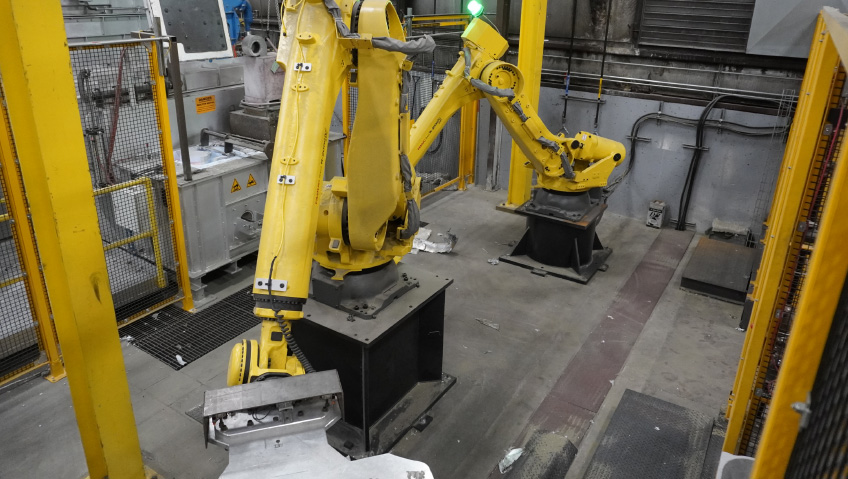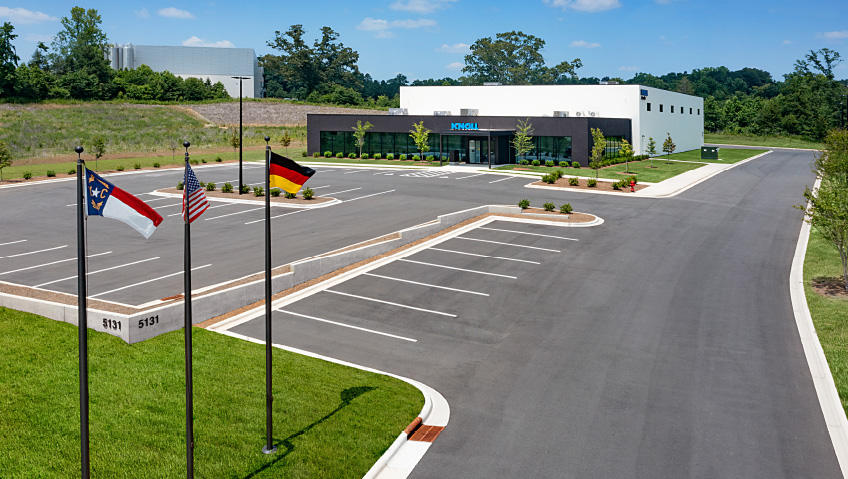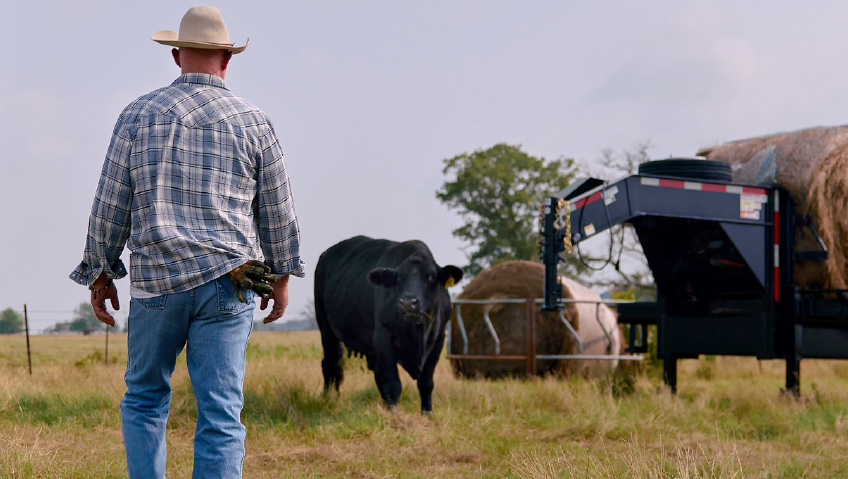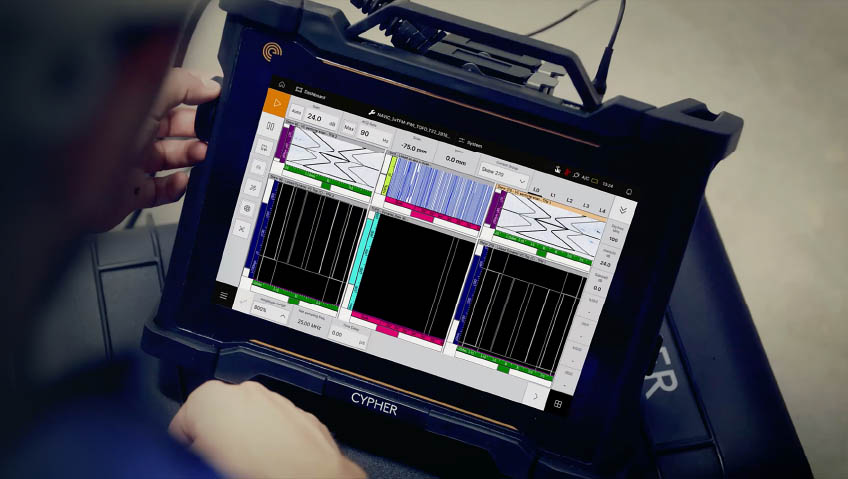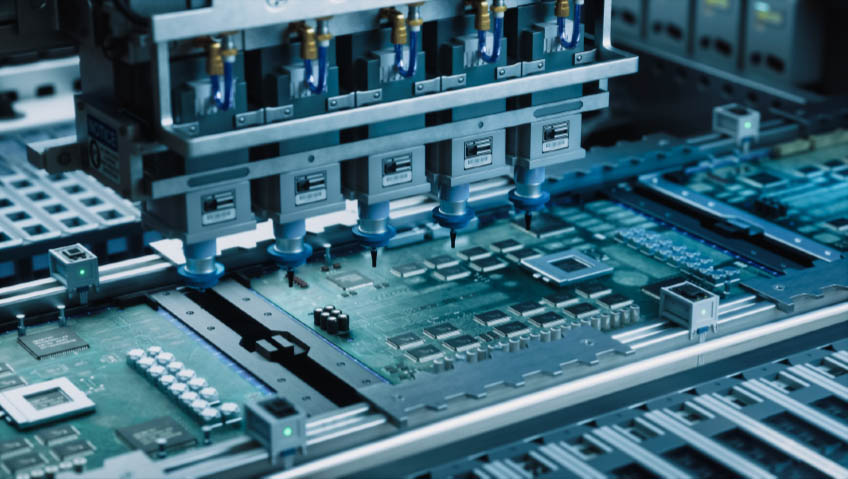Tucked away in Manitowoc, Wisconsin, Eck Industries Inc. is quietly doing what few aluminum foundries in North America can. For over 75 years, this fourth-generation, family-owned business has carved out a niche producing some of the most technically complex aluminum castings in the industry. Today, with a sharp focus on automation, engineering excellence, and a family-first workplace culture, Eck Industries is not just surviving, it is thriving.
“We’ve consistently grown the business at a significant pace over the last eight years,” says Vice President of Sales and Engineering, Tyler Eck, who shares leadership of the company with his cousin, both fourth-generation members of the Eck family to run the business. “That’s been compounded by significant annual growth for a business like us.”
While its longevity is impressive, it is the company’s recent transformation that truly stands out. After years of flat growth, Eck Industries embraced automation and made strategic hires in engineering to scale operations even amid industry-wide labor shortages. “Less and less people want to do the hard, difficult jobs, and we’ve been able to grow with fewer people because of the automation solutions we’ve implemented,” Tyler explains.
Eck Industries got its start in 1948 when Tyler’s great-grandfather, a metallurgist by trade, left another foundry due to a disagreement and decided to launch his own. Harley-Davidson was among the young company’s early customers, and even members of the Davidson family were original investors. What started as a scrappy entrepreneurial venture grew into a respected, multi-sector foundry serving industries from automotive to defense.
Today, the family legacy is very much alive. “We’re proudly a fourth-generation, family-owned business,” says Tyler, “and while there are other family members in the fourth generation, it’s just the two of us involved in the business, which allows us to stay focused and agile.” That focus and agility have enabled the company to evolve into a modern, technology-driven operation without losing its foundational values.
A sense of ownership flows down through the organization. With a workforce of roughly 200 employees, Eck Industries remains large enough to tackle complex projects, but small enough that employees are more than just a number or a face in the crowd. People know each other by name and the leadership team walks the floor regularly, listening to input, recognizing outstanding work, and creating a culture in which employees feel valued and heard.
Rather than chasing volume, Eck Industries has built its business around complexity. The company specializes in high-complexity sand and permanent mold castings, often using specialty aluminum-copper and high-strength alloys that few others dare to handle. This expertise attracts clients in sectors where failure isn’t an option.
“We like the hard stuff,” Tyler says simply. “If a part has failed at other foundries or the customer needs something no one else will quote, that’s where we shine.”
These are not just technical challenges; they are strategic opportunities. By focusing on the difficult jobs, Eck avoids competing on price alone and, instead, builds long-term relationships based on trust, performance, and engineering excellence. This forte has allowed the company to work in the defense, aerospace, and electric vehicle sectors, where high-performance, lightweight components are critical.
“One of the biggest advantages of taking on the tough jobs is the barrier to entry,” Tyler notes. “Not everyone has the capability or the appetite to handle the kinds of castings we do, which gives us a strong competitive edge.”
That edge has been sharpened in recent years by the company’s push into automation, not just on the shop floor but throughout the engineering and production lifecycle. “We brought in a few key automation engineers and started building our own solutions in-house,” Tyler says. “That changed everything.”
Rather than outsourcing, Eck Industries designs and implements automation internally. From robotic pouring systems to custom-built fixtures and process optimization, its engineering team owns every step of development. Traditionally, pouring molten metal into molds was a physically demanding and inconsistent process. But Eck has developed robotic systems that can pour up to 150 pounds of metal with high precision.
“Before, an operator might pour one mold at a time. Now we can pour multiple molds faster, more safely, and with better consistency,” Tyler explains. “That opens up new opportunities for larger parts and better economics.”
Automation also supports employee retention by helping to reduce repetitive or dangerous tasks and improve ergonomics. Instead of replacing workers, Eck empowers them to focus on value-added activities like quality control and continuous improvement. “It’s not about removing people from the equation,” Tyler says. “It’s about enabling them to do more meaningful work.”
Beyond hardware, Eck Industries uses powerful software tools like solidification analysis to simulate casting performance before metal is ever poured. This predictive modeling helps optimize gating, cooling, and alloy behavior to avoid common defects. Gating is part of the casting process that smoothly directs the metal to the mold so that the mold is evenly filled for better quality. “It lets us pour the casting in the computer first and see where it might fail,” says Tyler. “That helps us move faster and get it right the first time.”
The benefits are measurable: shorter development cycles, higher first-pass yields, and better customer outcomes. However, these improvements do not happen in isolation; rather, they are the product of a deliberate strategy to keep engineering at the core of the business. “A lot of our wins and losses start in engineering,” Tyler says. “We invest heavily there because if we miss something early on, we pay for it throughout the process.”
To keep the talent pipeline flowing, Eck Industries recruits from top foundry programs and supports the Foundry Educational Foundation (FEF). The company is also proactive about mentoring its young engineers and giving them early ownership of meaningful projects. One junior engineer, for example, was recently given the lead on designing a new robotic grinding cell, an initiative that is now being scaled across the plant.
“That sense of ownership is critical,” Tyler says. “We want people who can grow with us and bring new ideas that challenge the way we’ve always done things.”
This growth mindset extends across all departments. From quality assurance to production scheduling to finishing and shipping, Eck’s employees are encouraged to take initiative. “If someone on the floor has a better idea, we’re all ears,” Tyler says. “That’s how we get better.”
In a competitive manufacturing environment, customers increasingly seek partnerships, not just vendors, and Eck embraces this fully, working closely with clients on design for manufacturability (DFM), cost optimization, and performance improvement. “We’re involved early in the process, often before the part is even fully designed. That’s where we can make the biggest impact.”
This collaborative approach has helped the team forge deep relationships with original equipment manufacturers and Tier 1 suppliers. One recent example involved redesigning a part for a military contractor, which cut production costs by 20 percent and improved durability in the field. “It was a win-win,” Tyler says. “They got a better part, and we deepened the relationship.”
Beyond technical success, Eck Industries contributes to its local economy in Manitowoc through job creation, internships, and civic engagement. The company regularly donates to local schools and sponsors science, technology, engineering, and mathematics (STEM) initiatives, believing that investment in the next generation benefits both the community and the industry at large.
Sustainability is also a growing priority for this team. Eck recycles nearly all its scrap aluminum, uses energy-efficient equipment where possible, and is evaluating carbon footprint reduction strategies. “It’s the right thing to do,” Tyler says, “and our customers increasingly expect it.”
After nearly eight decades in business, Eck Industries is just getting started. With its automation scaling up, engineering talent deepening, and customer demand growing, the company is positioned for continued expansion—but do not expect this team to compromise its values in the process. “Our goal isn’t to become the biggest foundry out there,” Tyler says. “We want to be the best at what we do, and we want to keep that family feel, that culture of craftsmanship and care.”
That means more investment in people, more automation innovation, and more bold bets on complex castings others will not touch. With the next generation of leadership already proving its mettle, the Eck Industries legacy seems poised to shine even brighter in the years ahead.
“We’re not afraid to try hard things,” Tyler Eck says. “We believe if you do the right things long enough, the results will follow. That’s how we’ve built this company, and that’s how we’ll continue to grow it.”

